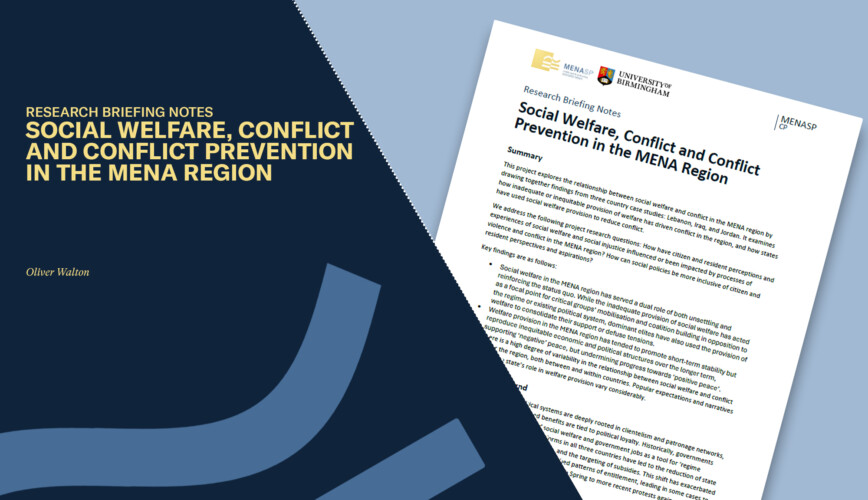This project explores the relationship between social welfare and conflict in the MENA region by drawing together findings from three country case studies: Lebanon, Iraq, and Jordan. It examines how inadequate or inequitable provision of welfare has driven conflict in the region, and how states have used social welfare provision to reduce conflict.
We address the following project research questions: How have citizen and resident perceptions and experiences of social welfare and social injustice influenced or been impacted by processes of violence and conflict in the MENA region? How can social policies be more inclusive of citizen and resident perspectives and aspirations?
Key findings are as follows:
- Social welfare in the MENA region has served a dual role of both unsettling and reinforcing the status quo. While the inadequate provision of social welfare has acted as a focal point for critical groups’ mobilisation and coalition building in opposition to the regime or existing political system, dominant elites have also used the provision of welfare to consolidate their support or defuse tensions.
- Welfare provision in the MENA region has tended to promote short-term stability but reproduce inequitable economic and political structures over the longer term, supporting ‘negative’ peace, but undermining progress towards ‘positive peace’.
- There is a high degree of variability in the relationship between social welfare and conflict across the region, both between and within countries. Popular expectations and narratives about the state’s role in welfare provision vary considerably.
DOI: 10.48352/uobxmenasp.0026
Author: Oliver Walton (University of Bath)
This project is supported by the Middle East and North Africa Social Policy Network (MENASP) at the University of Birmingham, in the framework of its ‘strengthening social welfare and security in the MENA region’ research programme, funded by the UK Arts and Humanities Research Council’s Global Challenges Research Fund.
Disclaimer: The opinions expressed in this publication are those of the authors. They do not purport to reflect the opinions or views of the Middle East and North Africa Social Policy (MENASP) Network or the University of Birmingham.
